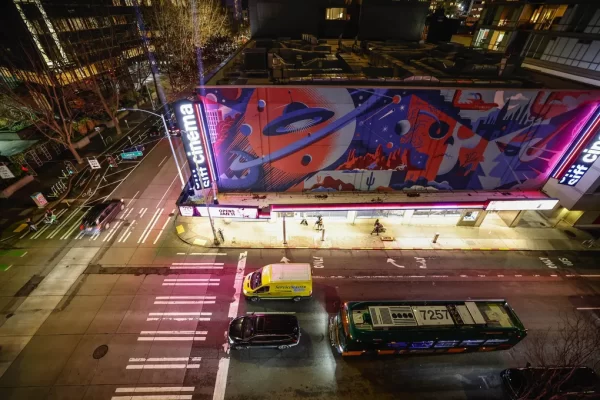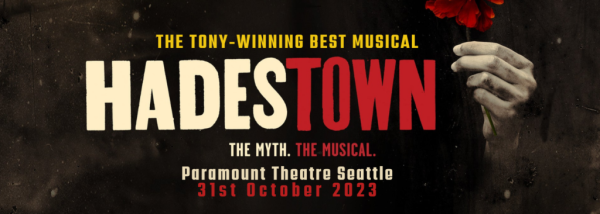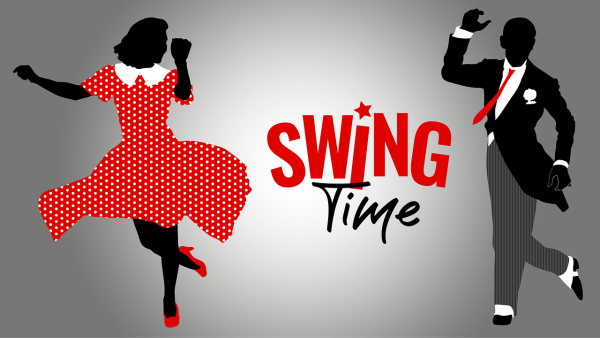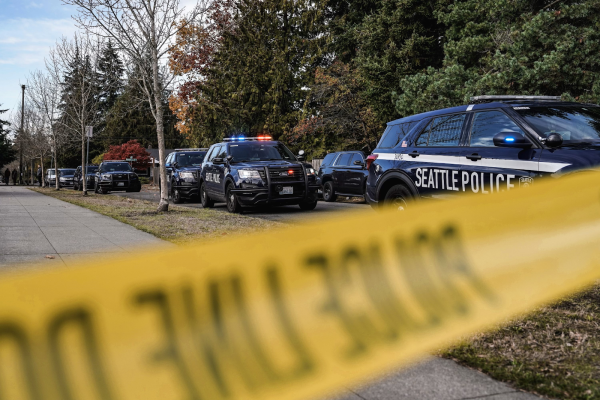A Strong Survivor’s Story
Gold Park is commonly traveled by students and citizens of the surrounding cities. It contains many secluded pathways away from sidewalks and nearby apartments.
October 31, 2016
Editor’s Note: This article is written by the victim of the Gold Park sexual assault that occurred in early 2016. It may distress readers sensitive to stories of sexual abuse.
Every two minutes a girl in America is raped. Last January was my turn.
It was just another Monday. I was walking home from my evening class, listening to music and thinking about what I should cook for dinner.
Out of the blue I felt somebody grab me from behind. Before I knew it, before I could even take my headphones off, I found myself on all fours in a dark park on the side of the road. I was trying to stand up and all I could see were hands, a lot of hands, trying to hold me down.
Even though everybody knows perfectly well that a girl has no chance against four fully grown men, I was still trying to break free, kicking the air, disoriented, shaking my head, and finally – screaming.
Apparently that is what I did wrong, or maybe just not good enough, because right after that I caught couple of punches in my face and throat. After that, breathing, let alone screaming, seemed impossible. Gasping for air and drowning in my own blood, I abandoned any further rebellious ideas – at least for some time.
I felt that I was moving, but it was hard to tell because my head was cracking in half from the headache. Everything was spinning. I could hear voices. I could feel bush branches cutting my face, and the dirt I was desperately trying to hold onto disappearing from under my hands.
It all stopped when I hit the ground. Without any time to rethink the situation, I felt my hands and legs being forced to the ground. It’s even harder to breath when someone’s sweaty palm is pressed to your mouth. A belt flickered in the dark and clicked. More sniggering.
It was only then that could I see the full picture of what was going to happen, and a new rush of resistant wiggling overcame my body. Believe me, the thought that resisting at that point was, well, pointless, didn’t come even after I caught a good dozen kicks to my stomach, but at least it left me powerless. I was trying to swallow the metal taste of blood, but somebody’s hand was pressing my throat down so tight I could feel his fingernails going into my skin.
I heard a zipper going down and everybody went quiet. The longest 30 seconds of my life started when he was taking his boxers off and making his way down to me. I tried to scream, to bite the hand that was blocking my mouth, to get him off me with my legs.
Right after the moment I felt the weight of his body on me I stopped moving. I didn’t scream or cry out loud, I was trying not to be there at all. I was empty, I was just a body, just a shell.
I could feel him moving, and I hated my own body for rocking repeatedly back and forth in some kind of animal-like convulsions of Neanderthal dance. I was afraid that if I closed my eyes I would disappear completely, and that miserable remainder of control I had left over the situation would slip away, so I kept my eyes open.
Through a window in the trees I could see the LA Fitness sign shining vaguely through the cloud of my tears. So I focused on that. I let all of my other feelings fade away. I thought that if I survived this, I should probably cancel my gym membership…
I was awakened from my miserable stupor by voices. They were louder than before. I tried to tune back to the reality and catch what they were saying, but I couldn’t tie familiar words into sentences. After about half a minute, I started to hope that they would leave me alone, but right after that I was brutally rolled to the side, moved face down and the party continued. I didn’t bother trying to keep my eyes open.
After I came home, I told my friend what happened. I repeated over and over like an incantation: “I am not going to the police. I am not telling my family.” I knew that I should definitely see a doctor, but other than that nobody should know.
A girl who decides not to report a rape crime has basically three reasons. First, depending on the circumstances, she feels threatened to speak up because the attackers may come after her again. Let me reassure you, after you have spoken with a police officer, you are safe. If you have any concerns, voice them, and police department will issue a protective detail.
The second reason is victims don’t see a point in it – reporting the rape will not make them feel better. Your dignity is not a wallet; police cannot return to you what the attackers have taken. It is extremely hard to talk about your experience with rape at any point. Doing so right away, or the day after, is excruciating.
I asked my friend to sleep with me in the living room downstairs that night, but I couldn’t close my eyes. At about 5 a.m. I couldn’t bear it any longer, and I skyped my mom. After seeing her face I knew I couldn’t not tell her. Besides the understandable mixture of shock, concern and pain she voiced, she insisted on calling the police.
This idea was frightening, but I promised I’d do it for her. The next day I went to college seeking the comforting and familiar faces of EdCC’s International Student Services advisers. My academic adviser Elizabeth Lyon heard me out and, with my permission, called campus security and the Lynnwood Police Department. The first time I gave a statement was horrible. Elizabeth and Lisa Thompson, director of International Student Services, were practically holding my hands the whole time.
After that, a police officer took me right away to the crime scene. Detective Arnett arrived shortly and made me go through the story again, visually demonstrating where I walked, where the attackers dragged me and who ran in what direction afterwards.
Gold Park looked so deceivingly innocent at daytime. All that was left from the previous night’s violence were some marks on the ground and my second shoe that I gave up looking for after the attack in the dark. After that, the detective and I picked up the clothes I was wearing during the attack and went to the hospital.
The day after was definitely the most horrible day of my life; somehow it then seemed even harder than the attack itself. I was asked to repeat my story at least 10 times to every new person who got involved – officers, detective, nurses, doctors…
My main statement lasted two and a half hours, recorded by Detective Arnett in the waiting room of the hospital. She made me voice out loud what was happening every second of the attack, going into every small detail from what everyone wore to what I could hear and smell when my eyes were closed.
And of course when getting to the main part you cannot just say, “and then he raped me.” You need to physically name every body part involved. You recount every single hit you took, every hickey they placed.
It sounds pretty horrifying, but the thing is, by the end of the day I stopped caring about saying it all out loud. Psychiatrists have proven reporting a rape to the police and going through all that hell after the attack is enormously helpful in the healing process.
When a rape happens, there are some parts of your story, the most physical ones, that you will never talk to your parents about. It just doesn’t feel right. You wouldn’t describe it to your closest friends either. You just state the fact that it happened.
My story sounded like this: “I walked home alone. Then four people attacked me, beat me up, took all the money I had and raped me. I ran home in one shoe.” Even though it is clear that the rape part is the one that torments me the most, I squeeze most of the horrible experience and details into one word.
My Compass Health counselor works with people who deal with consequences of sexual abuse and rape. The counselor said that when victims are asked to describe the incident, they will go on and on about what they ate that morning and how they ended up in the place where it happened, but will say just few words at the end about the rape itself.
We tend to be afraid of the dark, of things no one dares to speak about. In order to stop being afraid of a monster under the bed you need to bend down, take a look, identify and fight it until the monster goes away. How can you fight something that you refuse to look at?
When you don’t speak about rape it creates a dark corner in your heart. You know it is there and you are constantly reminded of it. But you avoid it – you don’t dare to come closer and turn on the light.
When you report a rape you are forced to face all the dreadful details which you would have never said otherwise. You will repeat them over and over until they lose their power over you. In the end, you will feel better, lighter. Maybe you will never speak of them again, or maybe that will help you open up and be able to talk about it later on with family and your loved ones.
Reporting the rape won’t cure you of all the suffering, but it is a first step in regaining control over your life. You are proving to the world and most importantly to yourself that you matter. What you think and want matters. Nobody can come and do what they want without asking you. You are making a decision to take a stand and fight for your rights.
Finally, the third reason standing in the way of reporting rape is that no other crime is looked upon by our society with such doubt and suspicion. There are many reasons for that specific mixture of feelings, one of which is self-protection. It is easier to think that the world is a fair place where everybody gets what they deserve.
If you close your eyes and keep telling yourself that all those poor girls put themselves at risk, or were simply asking for it, it does not mean you or someone you love will not get raped. You know better than that. Too often, the victim is selfishly blamed so that we can feel safe.
Rape can happen under any circumstances. At night and during the daytime, in a dark alley or in your own apartment, while you are getting drunk at a party or when you are walking home from work. Makeup versus no makeup. Revealing dress versus baggy sweat pants.
Why do the circumstances matter? I can walk naked down the Pike Street for all I want and nobody has a right to touch me. Believe me, no matter what she is doing at the time, no woman wants to be raped. No woman is “asking for it.” No circumstances make rape more excusable or the victim less innocent.
About 65 to 84 percent of rape victims choose not to report the crime. In turn, that means over 65 percent of rapists are not known to police, and will never be held accountable for what they did.
By assuring victims of their safety after reporting, teaching them that the report will help them heal faster and stopping rape victim stereotypes, we can help more of them come forward. If the number of reports goes up, the number of rapists stalking the streets in search of new prey will go down.
Statistically speaking, five rapes occurred while you were reading this article. Is this a reality you will tolerate quietly? Is this a world you want to live in?
We cannot get into the head of every rapist and change the way they behave. But we can change the way we as a society look at this crime. We can make victims feel sufficiently safe to come forward with their stories, and not ashamed or judged. The world cannot be changed in a day, but we can trigger change by acknowledging the topic and speaking openly about rape.
I refuse to be a powerless victim. I am a strong survivor, and I am proud of that.
If you, or a close one has been raped, or you’ve witnessed a rape, please call 911 right away. If you are a rape survivor and you need help or somebody to talk to, call the National Sexual Assault Hotline at 800.656.HOPE, available 24/7.










